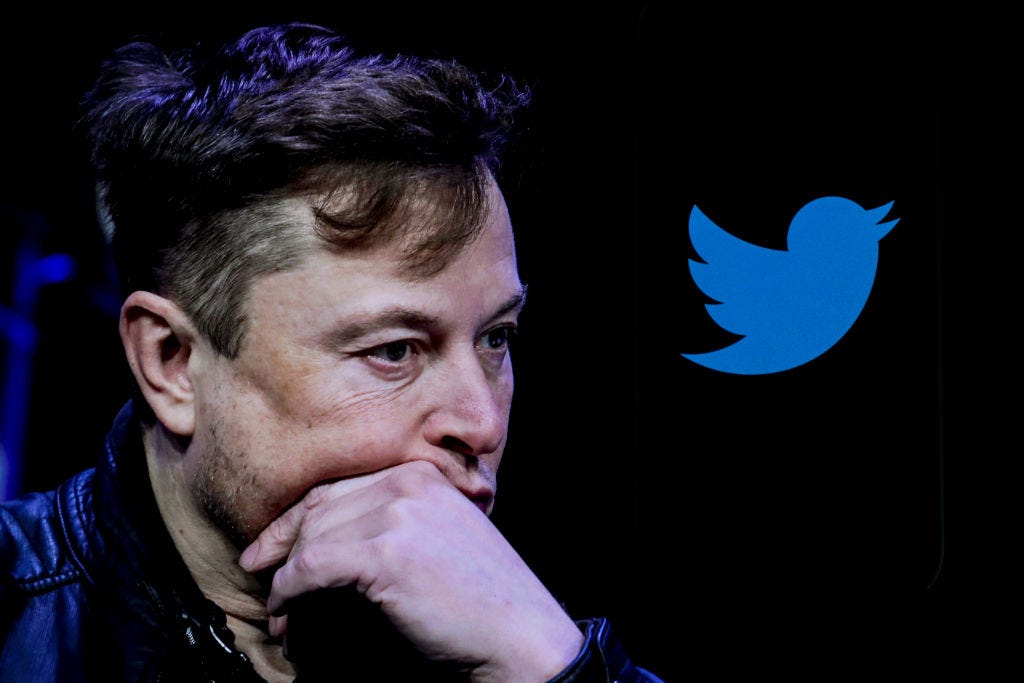Musk Fails and Bails and GOP Tries to Thwart Voters
Julliard’s Sour Song of Sex Abuse, Is Dyslexia the New Civil Rights Movement?, NYC Mayor Battles Twitter, My TV Picks, and More
In my last newsletter, I discussed a comment one of my subscribers made about the merits of Hallmark movies. This week, I’m going to refer to another subscriber, SJ Rozan, who pointed out that the old proverb Vox populi, vox Dei (“The voice of the people is the voice of God”) that Elon Musk uses when running his polls on Twitter has more to it. He inspired me to do a little research and he was right: In 798, Alcun (an English scholar and clergyman, wrote a letter to Charlemagne, a king who united much of Europe, commenting, “Nec audiendi qui solent dicere, Vox populi, vox Dei, quum tumultuositas vulgi semper insaniae proxima sit.” Which means, “And those people should not be listened to who keep saying the voice of the people is the voice of God, since the riotousness of the crowd is always very close to madness.” Alcun didn’t come up with the proverb, he was just warning that we need to be wary of mob mentality.
That got me to thinking about how often we misuse quotes to make the opposite point than the original intended. One of my favorites is people quoting early American writer Ralph Waldo Emerson: “Consistency is the hobgoblin of little minds.” This line is offered up with smug gotchya smirk. They have used one of the great minds of history to defend their own inconsistency—a characteristic of the bad athlete, evil politician, and lame thinker.
The problem is that the full quote is: “A foolish consistency is the hobgoblin of little minds, adored by little statesmen and philosophers and divines.” When you use the full quote, you get the opposite meaning.
Same with “Curiosity killed the cat,” which is used to dissuade someone’s curiosity. But the remainder of the phrase—“but satisfaction brought it back”—reveals that curiosity is a risk, but ultimately more rewarding than lacking curiosity. Also in this category is “Money is the root of all evil.” This phrase is meant to shame those who seek their fortune. But the full quote from 6:10 of 1 Timothy is “The love of money is a root of all sorts of evil.” Pursuing money isn’t the evil, it’s the love of money, which means abandoning other morals in its pursuit.
We have some lively discussions in our Comments section. That’s a good reason to subscribe.
Thanks, SJ.
Social Media: Musk’s Poll Was a Misdirection
Elon Musk Keeps Silent After Twitter Users Say He Should Quit as Boss (The New York Times)
SUMMARY: Elon Musk posted a poll on Twitter asking whether he should step down as head of the company and promising to abide by the poll results. The poll concluded he should step down.
MY TAKE: Elon Musk’s erratic behavior since buying Twitter has alarmed, frustrated, and angered many people, including some of his die-hard supporters, many of whom have since left Twitter. But Twitter was the least of his problems: Tesla lost most of its value as its core car-buying demographic of middle and left-leaning customers abandoned his car company, one referring to it as “the new MAGA hat.” In addition, he’s feeling political heat (“Sen. Elizabeth Warren sent a letter to Tesla’s board accusing Elon Musk of ‘unavoidable conflicts’ at Twitter and possible ‘misappropriation of corporate assets’”).
Naturally, Musk then conducted another of his famous Twitter polls, asking whether he should step down from his duties running the company—and promising to abide by the poll. The response was overwhelming, with 57.5% of the 17 million votes urging him to step down.
But this is not one man listening to popular opinion, which he has openly and loudly ignored in the past (including calls to better regulate hate speech). Instead, it’s a calculated plan to save face. Realizing he and his company was hemorrhaging billions—he lost $85 billion of the value of his stake in Tesla while Tesla’s value dropped $550 billion—he needed an escape strategy that would serve his business needs as well as his desired image as a savior-of-the-people. He probably already intended to step down to save his other, more profitable businesses, but by using this poll, the outcome of which he already knew, he was able to step down and still look like a hero who abides by the will of the people. He did a similar thing a few months ago when he conducted a poll to see if he should sell off stock while, according to Forbes, he already had the plan in motion.
It’s all rather duplicitous and insulting to his Twitter customers, whom he clearly sees as easily manipulated with a few buzz words about free speech, will of the people, yadda yadda. He has since agreed to remove himself from daily operations—as soon as he finds someone worthy of the position. Which was his plan all along.
His desperate supporters will cling to the PR fantasy because they need their heroes the way a crying toddler needs its favorite teddy bear. Or the way Trumpites need their digital trading cards.




